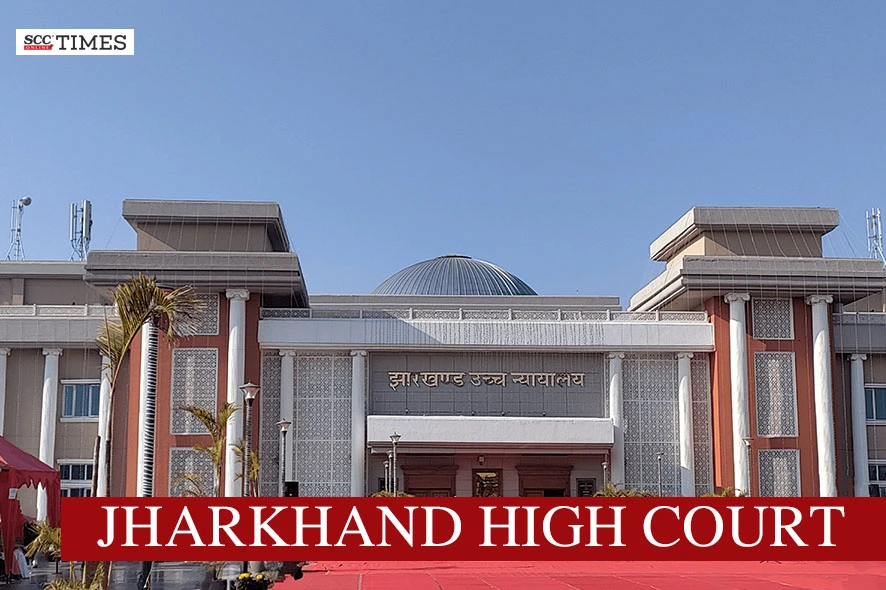Jharkhand High Court: In a Civil Writ Petition challenging the constitutional validity of Section 22-A of the Registration Act, 1908, as introduced by the State of Bihar vide the Bihar Amendment Act 6 of 1991, which was adopted by the State of Jharkhand and the consequential notification issued thereunder, the Division Bench of M.S. Ramachandra Rao, C.J., and Rajesh Shankar, J. relying upon the Supreme Court’s decision on similar issue in State of Rajasthan v. Basant Nahata, (2005) 12 SCC 77, declared the said amendment as unconstitutional.
Section 22-A of the Registration Act, 1908 as applicable to the State of Jharkhand stated:
“22-A. Registration of documents which is against the public policy.- (1) The State Government may, by notification in the official gazette, declare that the registration of any document or class of documents is against the public policy.
(2) Notwithstanding anything contained in the Act, the Registering Officer shall refuse to register any document to which the notification issued under sub-section (1) is applicable.”
The Court relied upon the Supreme Court’s decision in Basant Nahata (supra), wherein the Court had clarified the ambiguous nature of “public policy” and emphasized the impossibility of precisely defining it at any given time, thereby leaving the Executive to address its undefined aspects. The Supreme Court had firmly established that the power to interpret this concept rests solely with judiciary, and even then, its power is limited.
Consequently, the Supreme Court rejected the State of Rajasthan’s argument that as a higher authority, it would not misuse its delegated power under Section 22-A of the Registration Act. The Supreme Court thus declared Section 22-A ultra vires Articles 14 and 246 of the Constitution. Furthermore, the Supreme Court had dismissed the State of Rajasthan’s contention that, as a policy decision, it should be immune from judicial intervention. The Supreme Court had reiterated that legislative policies must adhere to constitutional mandates and are, in any case, subject to judicial review.
Therefore, placing reliance on the reasons in Basant Nahata (supra), the High Court in the instant case noted that it is bound by the Supreme Court’s decision. It was pointed out that the impugned Section in the instant case is similar to the Section struck down by the Supreme Court. The Court thus held 22-A of the Registration Act, as adopted by the state of Jharkhand, and the consequential notification under it, as unconstitutional. The Court further set aside all orders passed by Sub Registrars or the officials of the Registration Department pursuant to the notification 26-08-2015.
[Chotanagpur Diocesan Trust Association v. State of Jharkhand, 2025 SCC OnLine Jhar 2209, decided on 01-05-2025]
Advocates who appeared in this case:
For the petitioner: R.N. Sahay, Sr. Advocate Indrajit Sinha, Puja Agarwal, Rohitashya Roy, Vibhor Mayank, Nagmani Tiwari, Govind Ray Karan, Amit Kumar Verma, Ankit Vishal, Akhouri Awinash Kumar, Yashvardhan, Kirtivardhan, Ritesh Singh, Aditya Aman, Pratayksha Bhaskar, Advocates
For the respondent: Government Advocate Mrinal Kanti Roy, Government Advocate Manoj Kumar, Government Advocate Mithilesh Singh, Government Advocate Jayant Franklin Toppo, A.C. to A.A.G. Yogesh Modi, A.C. to A.G. Piyush Chitresh, P.A.S. Pati, Anil Kumar, Arpit Kumar, A.C. to G.A. Aman Shekhar, A.C. to G.A. Mr. Vishal Kr. Rai


